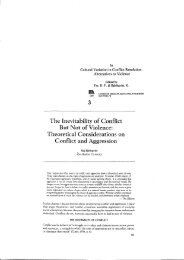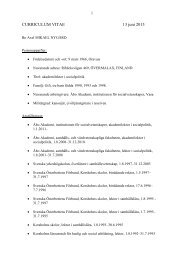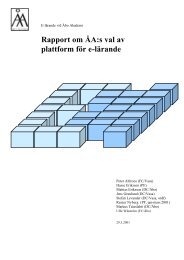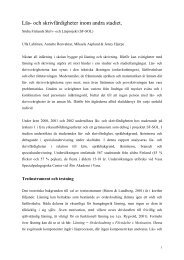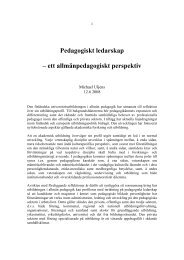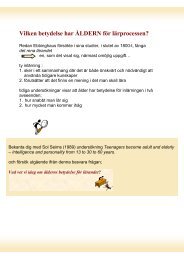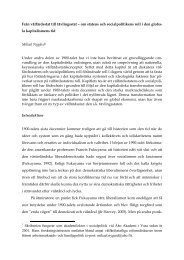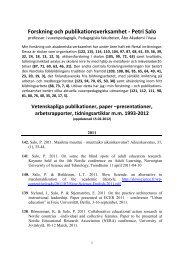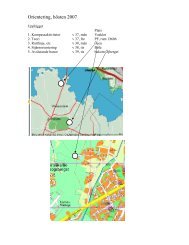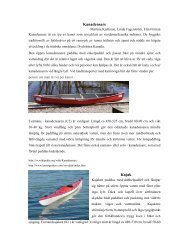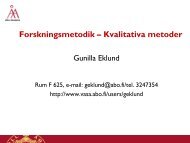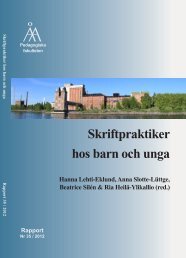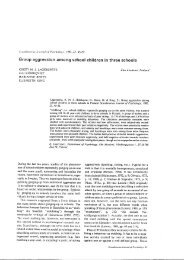Parties, Candidates and Citizens On-Line - Åbo Akademi
Parties, Candidates and Citizens On-Line - Åbo Akademi
Parties, Candidates and Citizens On-Line - Åbo Akademi
You also want an ePaper? Increase the reach of your titles
YUMPU automatically turns print PDFs into web optimized ePapers that Google loves.
<strong>and</strong> efforts into using the web for internal maintenance communication with local<br />
branches <strong>and</strong> its members.<br />
Research questions <strong>and</strong> design<br />
Moving towards the empirical part of the study, this section will outline the overall design<br />
of the study along with the study’s research questions. First <strong>and</strong> foremost, the study has<br />
an explicit explorative ambition – to explore potential party patterns found in the Finnish<br />
parties’ opinions regarding the importance <strong>and</strong> use of their websites <strong>and</strong> actual website<br />
content in light of several party related traits. Additionally, the study has a secondary,<br />
descriptive, ambition to study the Finnish parties’ own view of the importance of the<br />
party website <strong>and</strong> their use of it, <strong>and</strong> the actual content of their websites. The parties’<br />
actual behaviour as well as their motives for this behaviour is examined. This dual<br />
approach is motivated in order to provide a better underst<strong>and</strong>ing of party internet<br />
behaviour. Rohrschneider (2002, 380) remarks that: “…analysts may misinterpret the<br />
behaviour of parties without knowing the rationale for parties’ campaign decisions”.<br />
A theoretical discussion of aspects relevant to party conduct in general, <strong>and</strong> party<br />
internet conduct in specific, has been presented in the previous sections. It should be<br />
noted here that this theoretical discussion will not be used for forming empirically testable<br />
hypotheses but rather as a theoretical backdrop – a conceptual chart – towards which the<br />
descriptive findings will be related. The analysis does not seek to provide any final answer<br />
concerning the relationship between any of these circumstances <strong>and</strong> the parties’ view of<br />
the web <strong>and</strong> website contents. Rather, the purpose of this study is explicitly explorative;<br />
the study seeks to explore the plausibility of the actor-constructivist view through<br />
examining the influence of several theoretical circumstances on party internet behaviour.<br />
The following overall research questions will be explored in the study:<br />
RQ1a: Are there any patterns in the parties’ opinions concerning the importance <strong>and</strong> use<br />
of their website which are traceable to the parties’ character in terms of party goals,<br />
organization, size or composition of primary supporters?<br />
RQ1b: Are there any patterns in the contents of the parties’ websites which are traceable<br />
to the parties’ character in terms of party goals, organization, size or composition of<br />
primary supporters?<br />
In order to answer the overall research questions, two descriptive questions need to be<br />
answered:<br />
92



